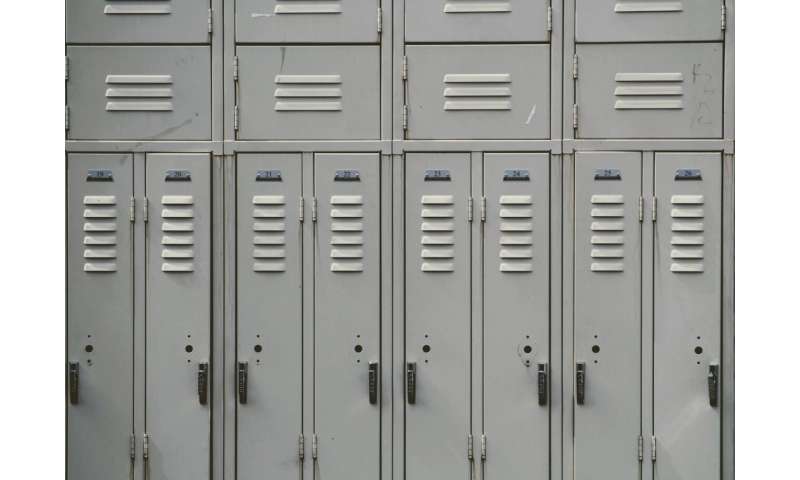The invisible challenges facing school principals

A new Monash University study is exploring the emotional demands experienced by Australian principals.
Australian schools are experiencing a major crisis in principal recruitment and retention, driven by stress, burnout and intensified workloads. A new study led by Monash University's Faculty of Education will provide a chance for principals in public schools to tell their stories about how these demands are impacting the nature of their work.
The survey will provide the public with a glimpse into the nature and complexity of this work through a publicly available website which will curate and anonymously showcase some of the principals' stories. The findings will also identify new understandings of the changing nature of a principals' role when it comes to meeting emotional demands.
The three-year project will aim to improve leadership preparation and development for school principals to help them manage complex emotional workload demands
Lead researcher, Professor Jane Wilkinson from the Faculty of Education, says the emotional intensity of principals' work has often been an "invisible" element of their work and not easily quantified or measured.
"Research needs to address not only the impact of excessive workload in terms of long hours (crucial though that is), but also the increased emotional intensity of this work. It's the emotionally draining nature of the work, the 'hard' hours where principals are dealing with more and more demanding, emotionally-intense situations as they support troubled staff, students and parents. This 'invisible' element of a principal's work plays a significant role in increasing the stressors that impact their health and well-being," said Professor Wilkinson.
Managing one's emotions and navigating those of others—"emotional labor"—is a crucial aspect of principals' work, but not a lot is known about it.
Chief Investigator, Professor Lucas Walsh, added that principals' work is a stressful negotiation of demands of students, staff, parents and caregivers, among other demands.
"Managing these competing demands, and the emotional capacity to switch seamlessly between interactions with diverse members of school communities, can affect health and well-being, including chronic stress, burnout and low job satisfaction," said Professor Walsh.
The project expects to generate new knowledge about principal workforce development and to create a framework for policymakers that identifies the knowledge and practices required to develop leaders' emotional skills and build bridges across diverse communities.
Researchers expect that further anticipated benefits of the survey will include reduced principal turnover, improved teacher retention, improved student outcomes and greater social cohesion.
"I am often reminded of the privilege and price of leadership in the role of a principal. You are working with colleagues to improve the teaching and learning outcomes for the students in your school. However, most of your time is spent dealing with intense critical matters. You are always navigating difficult relationships and very complex matters. All of it takes a toll. There is help available but you are intrinsically responsible and you're often left exhausted at the end of each year," said Pitsa Binnion PSM, retired school principal of 15 years.
The survey will also give the public a glimpse into the nature and complexity of this work through a publicly available website that curates, in de-identified form, some of the principals' stories.
More information:
Jane Wilkinson et al, The Emotional Labour of Educational Leading: A Practice Lens, Educational Leadership through a Practice Lens (2021). DOI: 10.1007/978-981-16-7629-1_8
Luke Howie et al, Wild and tame zones in times of disharmony: Muslim boys and belonging in a primary school in Melbourne, Australia, Journal of Youth Studies (2020). DOI: 10.1080/13676261.2020.1777265
Lucas Walsh et al, An ecological case-study of the benefits and challenges of socially-just leadership engaging in 'challenging conversations' about social disharmony, Journal of Educational Administration and History (2020). DOI: 10.1080/00220620.2020.1738361
Amanda Keddie et al, '…we don't bring religion into school': issues of religious inclusion and social cohesion, The Australian Educational Researcher (2018). DOI: 10.1007/s13384-018-0289-4
Leading for social cohesion in Victorian public schools: Final report. research.monash.edu/en/publica … ic-schools-final-rep
Leading for social cohesion: The key role of schools. Centre for Strategic Education [CSE] Seminar Series 203, April. www.cse.edu.au/content/leading … ion-key-role-schools
Leading for social cohesion: How principals respond to 'challenging conversations' about social and political volatilities and disharmonies. research.monash.edu/en/publica … spond-to-challenging
Invisible labour: Principals emotional labour in volatile times. www.monash.edu/education/resea … ur-in-volatile-times
Provided by Monash University